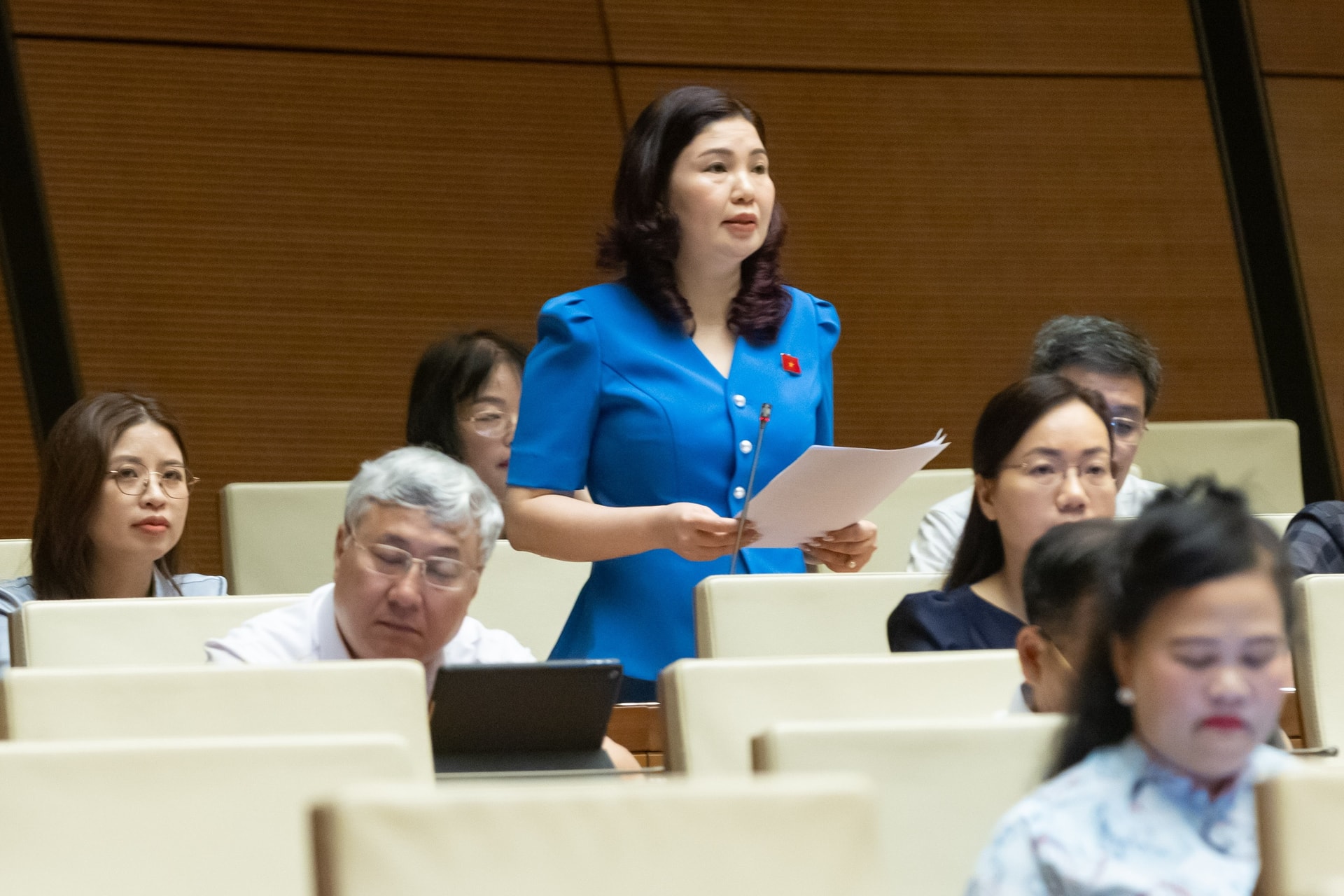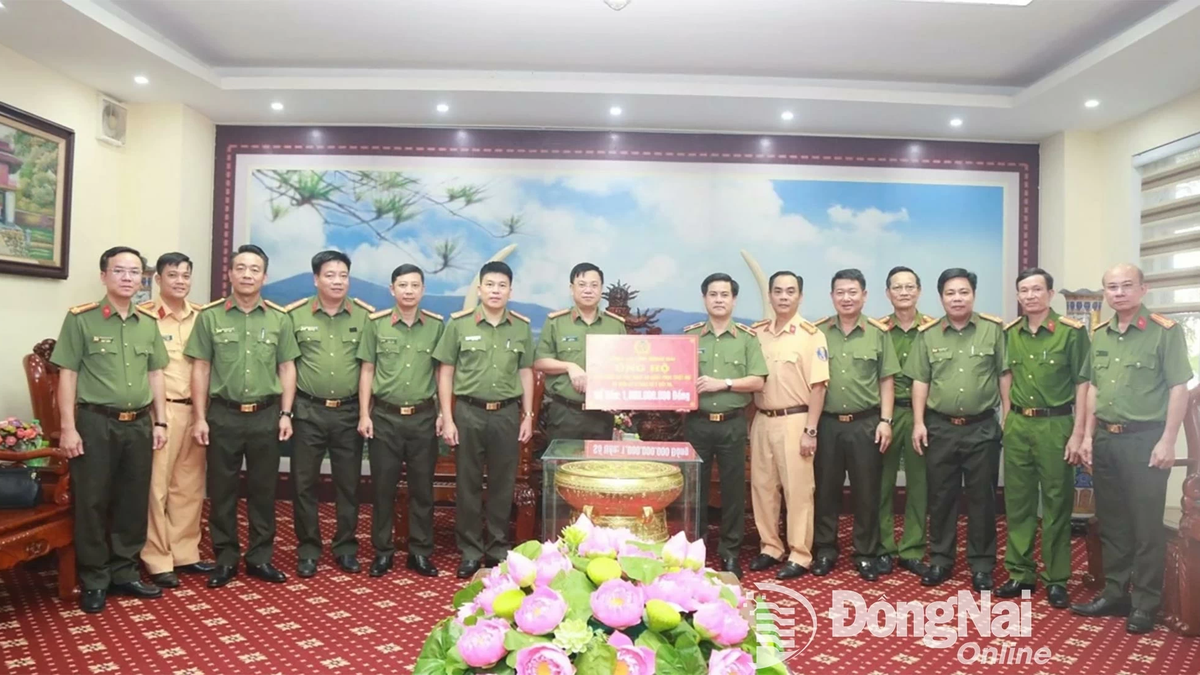The National Assembly's draft Resolution on a number of specific mechanisms and policies, especially for private economic development, is under review and is expected to be submitted to the National Assembly for approval at the 9th Session, which will last until June 30.
In Article 10, Chapter IV of the draft on financial support, credit and public procurement, the Government proposes that businesses, especially innovative startups and small and medium-sized enterprises, will enjoy many tax and fee incentives as well as support in research, innovation and digital transformation activities.
Agreeing with the content of the Draft Resolution on a number of special mechanisms and policies for private economic development, delegate Tran Thi Van, National Assembly Delegation (NAD) of Bac Ninh province, said that it is necessary to be stronger in reducing taxes for the policies to be effective.
Delegates said that compared to other incentive policies such as credit incentives, land access, human resource training, and administrative procedure reform, tax exemption and reduction have a quick impact, do not require many procedures, help start-ups and small and medium-sized enterprises overcome the initial difficult period, and improve their competitiveness.

Extend corporate income tax exemption period, nurture startup ecosystem
In order for the policies to be effective when implemented, delegate Tran Thi Van proposed to increase the corporate income tax exemption period to 5 years, then continue to reduce 50% of the tax payable in the next 5 years instead of 2-year tax exemption and 50% reduction in the next 4 years as stated in Clause 1, Article 10 of the draft Resolution.
According to the analysis of the delegates, the characteristics of the group of creative startups require large investment capital and long investment time to research, develop products, test business models, build technology, recruit and retain high-quality staff, and continuously adjust to adapt to market fluctuations. During the process of struggling to survive, they must accept the risk of loss, and may even not make a profit in the first 5-7 years. Exempting corporate income tax for only 2 years and reducing 50% of tax for the next 4 years as drafted is too short compared to the actual development cycle of creative startups; not strong enough to encourage businesses to invest in production and business development.
“Tax policies need to be designed to accompany businesses in the initial formation and accumulation stages. Extending the tax exemption and reduction period will create important financial space, helping businesses focus resources on innovation. This is also a practical solution for the State to demonstrate its role in creating and nurturing the startup ecosystem, a pioneering force contributing to promoting rapid and sustainable economic growth,” emphasized delegate Tran Thi Van.

Along with that, delegate Tran Thi Van also proposed to increase the personal income tax exemption period to 5 years for income from salaries and wages of experts and scientists received from innovative start-up enterprises in Clause 3, Article 10.
According to the delegates, experts and scientists are the core personnel, directly creating technological value, innovating and bringing products to the market. In practice, many countries have very strong competitive policies in this field. For example, Thailand exempts personal income tax for up to 10 years for investors and experts working in 10 strategic technology and innovation fields.
“If we do not have attractive and competitive policies, we will miss the opportunity to attract talent and find it difficult to create technological breakthroughs in the future,” delegate Tran Thi Van stated.
At the discussion session, delegate Tran Thi Van also proposed to exempt small and medium-sized enterprises from paying corporate income tax for 3 years from the time the enterprise generates profit instead of from the time it is first granted a business registration certificate in Clause 4, Article 10 of the draft Resolution.
According to the delegate, businesses often do not make profits immediately after being established. The initial stage is the period of focusing on investment in construction, recruitment, market research, and product development.
“If we exempt taxes from the date of issuance of the business registration certificate, it means that when the enterprise makes a profit, the tax exemption period will have expired, the tax exemption policy will become a formality and ineffective,” emphasized delegate Tran Thi Van. Therefore, the delegate suggested that tax exemption should be applied at the right time when the enterprise is able to pay taxes, that is, when they make a profit.
Proposal to add provisions on support for registration costs and protection of intellectual property rights
Delegate Tran Thi Van emphasized that in the context of the global economy shifting strongly to a knowledge-based economic model, intangible assets, especially intellectual property rights, play an increasingly important role in determining national competitiveness. For startups, core products are technology, algorithms or exclusive ideas; if not protected promptly, businesses can easily lose their market, have their technology copied or face legal risks.
In Vietnam, most startups and small and medium-sized enterprises do not have the financial and legal capacity to register intellectual property in a timely and standard manner. Many have lost their trademarks, had their domain names taken over, or were unable to raise capital due to lack of ownership certificates, seriously affecting the value of the business and its ability to expand into the international market.
Therefore, protecting intellectual property is not only to prevent legal risks, but also a business development strategy. Therefore, delegate Tran Thi Van also suggested that the Drafting Committee add a provision on supporting costs for registration and protection of intellectual property rights to Chapter 5 of the draft Resolution.
Creating clean land for private economy
Regarding land resources, Delegate Tran Hoang Ngan, Ho Chi Minh City National Assembly Delegation, expressed his agreement with the policies to support access to land and production and business premises in the draft Resolution.
However, delegate Tran Hoang Ngan also proposed adding content that localities with land, potential and strengths should create a mechanism to establish industrial parks for private enterprises and small and medium enterprises to rent with support policies.
"To be economically independent and self-reliant, the private sector must grow; therefore, there needs to be provisions to encourage localities to create clean land for the private economic sector," delegate Ngan emphasized.
The delegate emphasized that in order to achieve the goal of 2 million enterprises in 5 years, there must be policies to support individual business households to become enterprises. Along with that, it is necessary to improve and expand larger-scale enterprises.
Source: https://baodaknong.vn/doanh-nghiep-doi-moi-sang-tao-co-the-duoc-huong-nhung-chinh-sach-dac-thu-nao-252762.html


































































































Comment (0)